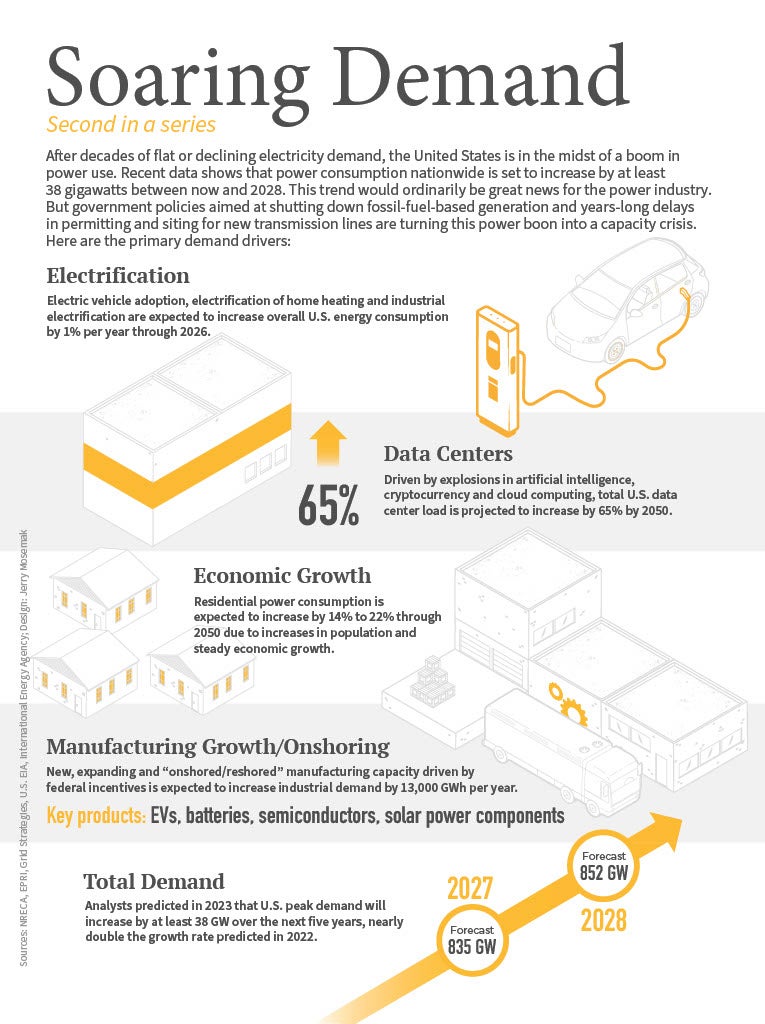Reliable electricity powers our daily lives — and it is the foundation of the American economy. As more of our economy becomes electrified, the demand for power is growing rapidly.
Artificial intelligence, cryptocurrency and e-commerce have led to the rapid expansion of data centers. By 2050, the electric load for data centers is projected to increase by 65%. Economic development, industrial and home heating electrification, electric vehicle adoption and manufacturing growth will also increase the demand for electricity in the next several years.
The Energy Information Administration (EIA) projects that electricity demand will increase by 2.5% in 2024 and by 3.2% in 2025. And peak demand is expected to grow by 38 gigawatts through 2028. That’s like adding another California to the grid!
Yet energy supply is decreasing as 24/7 coal and gas facilities are being retired prematurely. Making new renewable generation facilities operational and connecting them to the grid can take years because of extensive permitting requirements.
Even more concerning are federal regulations that further threaten energy reliability and will lead to higher energy costs for power providers, rural electric cooperatives like Victory Electric, and consumers.
What’s happening?
An Environmental Protection Agency (EPA) final rule published in April overhauls the way baseload power plants operate. The rule could lead to more frequent blackouts, higher costs and uncertainty.
What’s the issue with the new rule?
National Rural Electric Cooperative Association (NRECA) CEO Jim Matheson summed it up like this: “EPA’s power plant rule is unlawful, unreasonable and unachievable. It exceeds EPA’s authority and poses an immediate threat to the American electric grid.”
The final rule states that by 2032, baseload coal and natural gas plants will need to capture 90% of carbon dioxide emissions using carbon capture and storage technology (CCS). However, power plants already using CCS technology have not met the levels the new standard requires.
What’s next?
In May, the NRECA filed a lawsuit that challenges the EPA over its power plant final rule. Other affected organizations and 27 states, including Kansas, also challenged the EPA and requested to stay the rule. NRECA and our partners will continue to monitor these important issues and speak on behalf of our member-owners.
Protecting reliability is not a partisan issue, but energy policy has a significant effect on our ability to provide safe, reliable and affordable power. Smart energy policy helps keep the lights on affordably. Renewable energy technologies must be balanced with generation sources that are always available to ensure a reliable electric grid.

